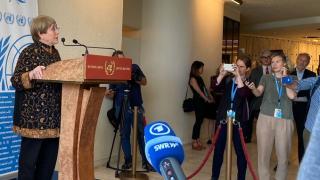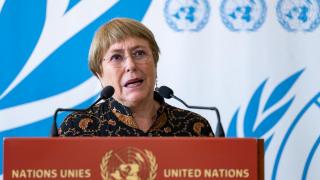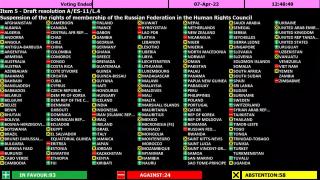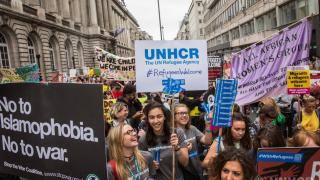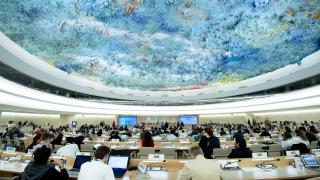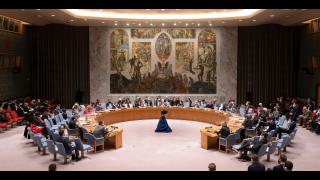
Part of our regular series of background briefings on the UN in the news.
“The UN Special Rapporteur on extreme poverty and human rights, Philip Alston, will undertake a human rights fact-finding visit to the United Kingdom from 5 to 16 November 2018 to investigate Government efforts to eradicate poverty.” This straightforward announcement from the Office of the High Commissioner for Human Rights is likely to cause considerable interest in the British media. With this in mind we have prepared the following briefing.
What is the UN Special Rapporteur on extreme poverty and human rights?
UN Special Rapporteurs are independent human rights experts. Often they are academics who are based at universities or similar institutions. To preserve their independence they receive no remuneration from the UN. The UN’s Office of the High Commissioner for Human Rights provides them with limited support for their activities, including some support staff time.
They are appointed by the UN Human Rights Council, a body of 47 countries elected by the UN General Assembly. They must report to the Human Rights Council annually and, in addition, most will also make a report to the General Assembly. Part of their mandate includes country visits, which can only take place at the invitation of the government in question.
Many countries have issued so-called 'standing invitations' to Special Rapporteurs. By extending such an invitation, the state announces that it will always accept requests for visits. As of November 2018, 118 states had issued such invitations, including the UK.
There are currently 55 Special Rapporteurs or Independent Experts, investigating 44 thematic and 11 country specific “mandates”. The UN Special Rapporteur on extreme poverty and human rights is one of the oldest such mandates. It was first established in 1998 by the United Nations Commission on Human Rights, and was taken over by the Human Rights Council in June 2006. The Rapporteur has been tasked (via a number of Human Rights Council resolutions) with promoting measures for ensuing that those in extreme poverty can more fully enjoy their human rights, and with studying the impact of discrimination on extreme poverty and how it is experienced.
Mr. Philip Alston of Australia has been the Special Rapporteur since 2014. As the position is unpaid, most Special Rapporteurs also have a “day job” and Mr Alston is a Professor of Law at New York University.
What is he doing in the UK?
Mr Alston will undertake a human rights fact-finding visit to the United Kingdom from 5 to 16 November 2018 to investigate Government efforts to eradicate poverty. He will visit Belfast, Bristol, Cardiff, Edinburgh, Jaywick in Essex, Glasgow, London, and Newcastle.
He has announced that he will particularly be looking at the rollout of Universal Credit, child poverty, and the implications on poverty of the UK leaving the EU.
In advance of his visit, he requested written submissions from UK civil society. 26 academics, six National Human Rights institutions, 81 Civil Society Organizations, 55 individuals and five public institutions wrote to him. Their evidence, as well as his observations and the views of the British Government, will form the basis of his report.
Why is he coming to the UK?
As with all visits by Special Rapporteurs, Mr Alston is coming at the request of the British Government.
UN Special Rapporteurs set their own priorities and are free to investigate any issue that interests them. Their role is not to seek out the most egregious offences in the world - indeed, in such cases they are likely to be barred from entering - so a visit from a special rapporteur should not, on its own, be taken as an indication that there are significant issues that fall within that Rapporteur’s purview. Instead, it usually indicates that there is a particular situation or development in a country that merits a visit, where expert advice may be useful, and which might hold useful thematic lessons for other countries.
Is extreme poverty a human rights issue?
Poverty makes individuals vulnerable to abuse and discrimination in various forms. The mandate of the Special Rapporteur is primarily phrased in terms of protecting the other human rights of those in poverty, rather than on the issue of poverty itself.
Nevertheless, extreme poverty is increasingly considered to be a human rights issue. Human rights are an evolving set of the bare minimum standards of behavior that people can expect from each other and from their governments. The modern understanding of human rights developed in stages, but it is now widely accepted that the “second generation” of economic, social, and cultural rights (sometimes called “positive rights”) such as the rights to education, food, shelter, health, work, social security, and an adequate standard of living are fundamental human rights. Extreme poverty is a violation of those rights.
There is a misconception among some in the UK that “first generation” civic rights (such as the right to vote or worship or freedom of speech) represent the full extent of human rights. Likewise, in other parts of the world (notably on the other side of the former “iron curtain”) second generation rights were given greater attention at an earlier stage and first generation rights were neglected. By promoting the universality of rights, the United Nations plays a valuable role in promoting second generation rights in the parts of the world where they have yet to become institutionalised, and of first generation rights in areas where they are less universally accepted. This exchange of ideas and global development of standards is to the benefit of all.
What are the consequences of negative media coverage during a special rapporteur’s visit?
Unfortunately, several recent visits to the UK by UN Special Rapporteurs have been marred by misleading, hostile and occasionally racist reportage. At times, this reporting appears to have been encouraged by members of Parliament and, on occasion, government ministers.
These articles will frequently misrepresent the nature of the Special Rapporteurs role, the purpose of their visit, and the fact that they are in the UK by the invitation of the government. Comparisons with human rights of other countries or comments regarding the Rapporteur’s own origin are frequently used to divert attention away from the purpose of the Rapporteurs' visit and their findings.
Such language diminishes the United Kingdom in the eyes of the international community, and can also be used to legitimise the actions of rights violators and of the UK’s strategic rivals. Officials in Kenya, Sri Lanka and Russia have used statements of this sort to justify negative actions with respect to human rights in their own country.
Photo: UN Photo/Loey Felipe

